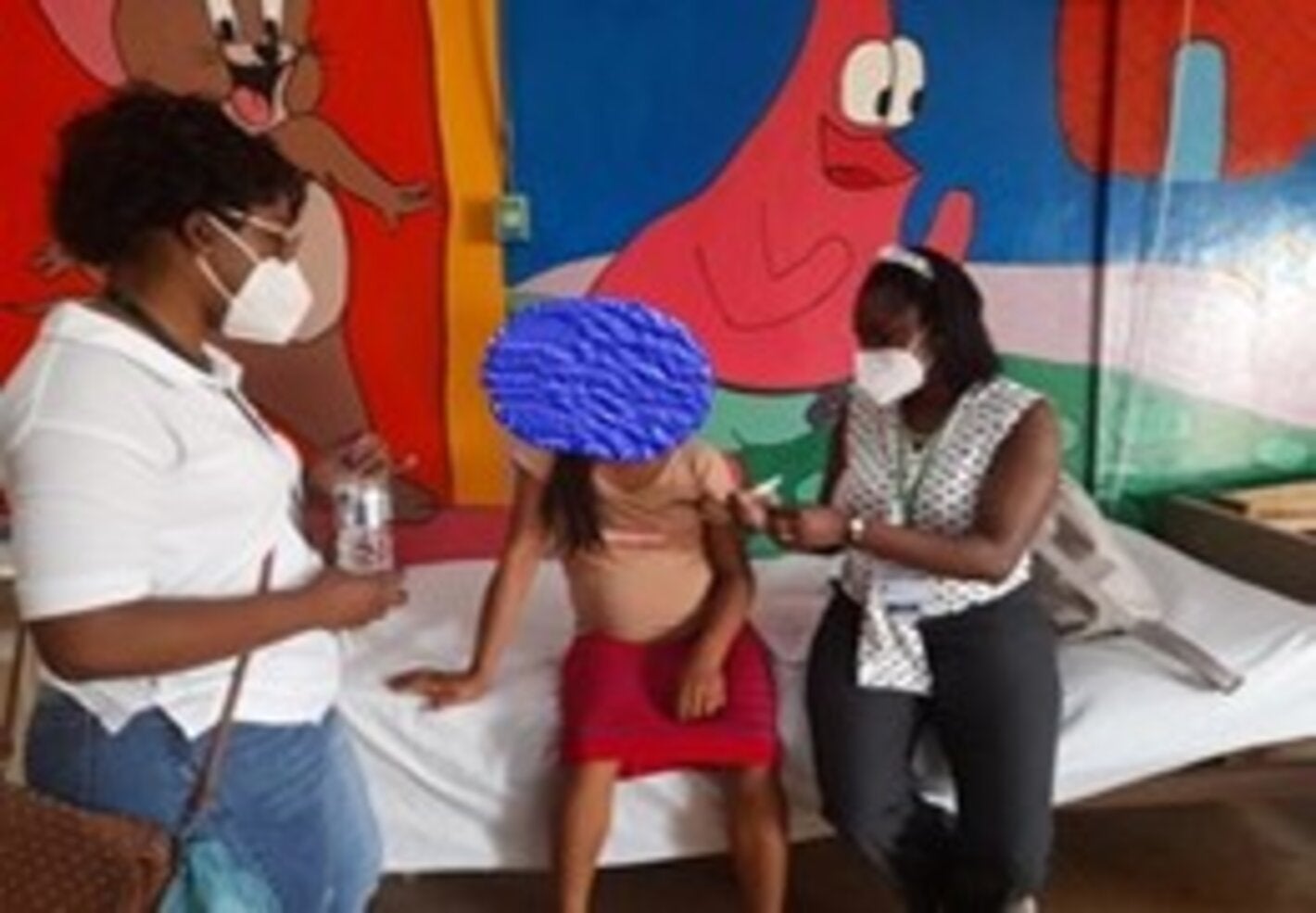
Georgetown, 21 March 2022- PAHO/WHO and the Ministry of Health under the Canadian project conducted a hinterland field visit to the regional district of Lethem and the Annai Community in region 9 to address issues of teenage pregnancy among girls ages 10-19. Challenges related to comprehensive health education, engagement, practices, and the utilization of services for Sexual and Reproductive Health, Maternal, adolescent girls, and women’s health and rights at the individual, family, and community level. The monitoring exercise discovered that these hinterland villages had a high incidence of adolescent pregnancy in 2021, where a significant spike of the 880 births recorded, approximately 30% of the mothers were under 19. Hence, the need for more interventions to address teenage pregnancy.
Over the years, Guyana has been working but still experience challenges in addressing these issues and has recorded high incidents of adolescent and unwanted pregnancies.
The team interacted with two teenage girls ages 12 and 13 preparing for motherhood were at 19 and 32-weeks pregnancies, respectively. During the interaction, it was evident that a significant contributing factor for their current situation is violence in the home. We need to analyze and discuss openly and tackle all the signals of sexual abuse among family members or external individuals. The legislation also has to follow society's reality and change to make absolute social protection to adolescents. Adolescents who may want to avoid pregnancies may not be able to do so due to knowledge gaps and misconceptions on where to obtain help. Adolescents face barriers to accessing contraception, including restrictive laws and policies regarding the provision of contraceptives based on age, not forgetting cultural barriers within these communities. Therefore, there is a need for a more integrated approach with health officials, schools, and community groups in region 9 for interventions at the community level targeting adolescents, parents, and community leaders.
This approach will include outreaches and training programs at schools and health facilities and sessions on drug abuse, mental health, hygiene, nutrition, and sexual reproductive health.
The Toshaos have agreed to collaborate with the Ministry of Health and PAHO/WHO to establish Peer Helpers Committees that will work with the health care providers and their peers to address health and social issues in their respective communities.
The end goal is to build a stronger bond between the health officials and the members of these communities, reduce the causes of adolescent pregnancy and other social issues affecting residents, and provide the residents an opportunity to develop themselves.
PAHO/WHO will continue to support the hinterland communities in collaboration with the Ministry of Health.



